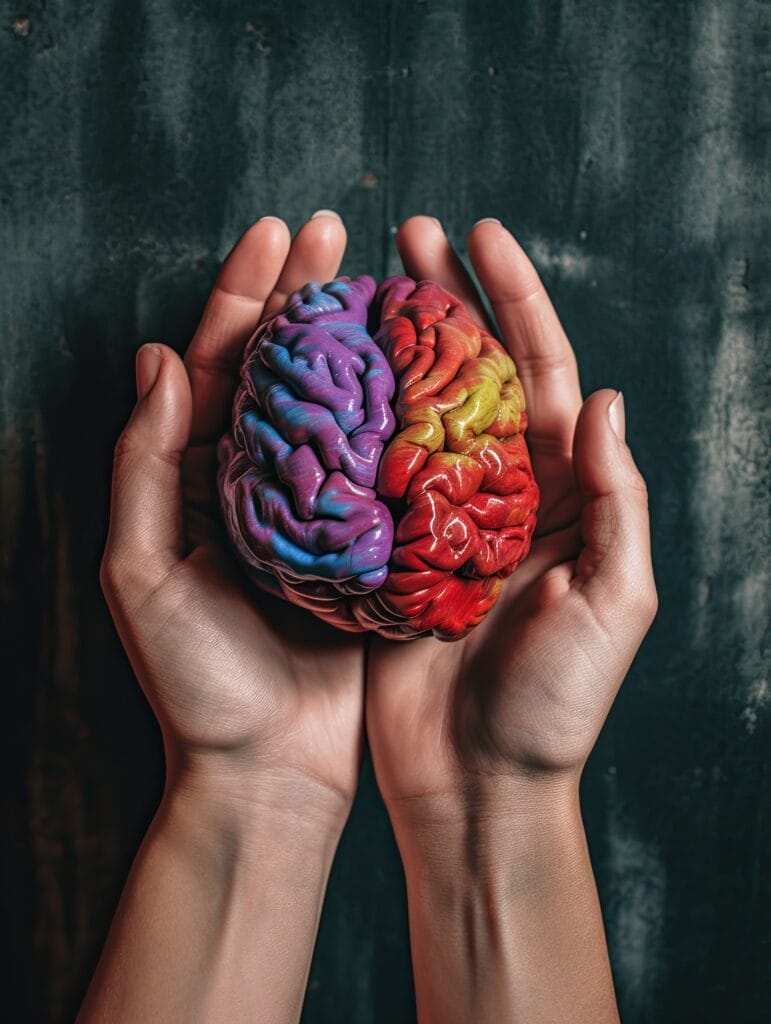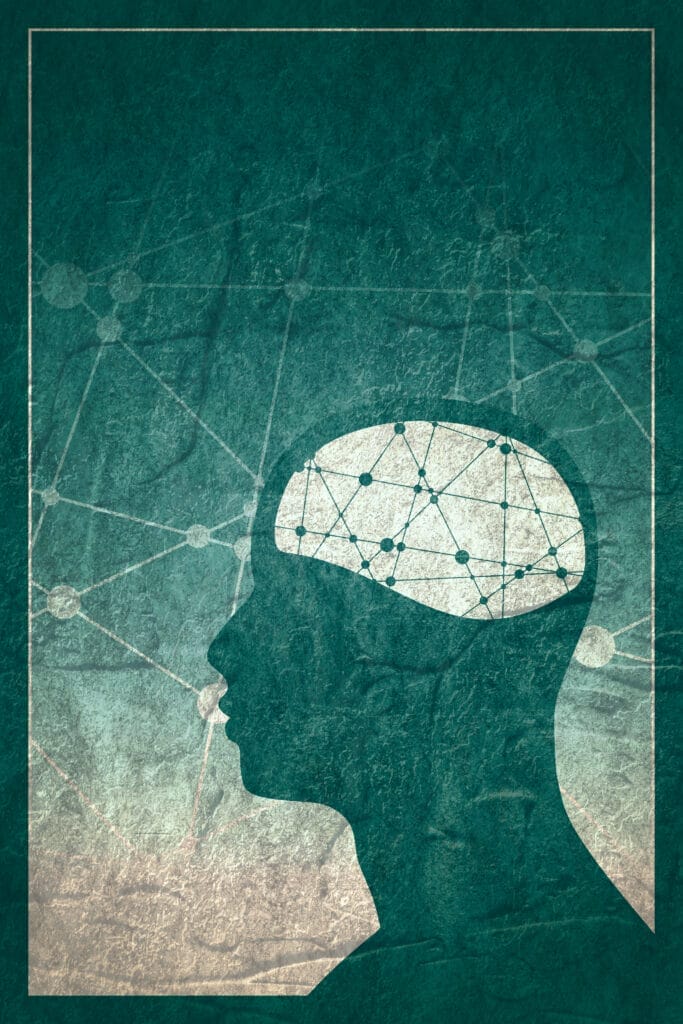
Neurofeedback Therapy Los Angeles
Are you interested in exploring alternative methods for treating mental health disorders and want to know where to start? If you’re on a quest to enhance your mental well-being naturally, you’re about to discover an innovative solution that merges cutting-edge science with ancient wisdom. Our Neurofeedback Therapy in Los Angeles, CA introduces you to a transformative journey that harnesses the innate potential of your mind to achieve balance, clarity, and emotional harmony. We invite you to explore the realm of Neurofeedback Therapy, a non-invasive technique that takes advantage of your brain’s remarkable ability to reshape and rejuvenate itself.
Table of Contents
Proven Benefits of Neurofeedback Therapy
Neurofeedback Therapy is an innovative approach to mental health, offering a way to directly train your brain to function better. This therapy has garnered support from many research studies, highlighting its effectiveness in addressing common mental health challenges such as stress, anxiety, and depression. Additionally, it holds promise for those battling addictions, providing a new avenue for breaking free from the cycle of cravings and relapse.
In the realm of addiction recovery, Neurofeedback Therapy acts as a personalized brain training program. It encourages the brain to seek out positive behaviors instead of substance dependence. Researchers have found that individuals undergoing Neurofeedback Therapy gain enhanced control over their impulses, significantly boosting their chances of sustained recovery [1].
Neurofeedback serves as a therapeutic tool to level out the emotional turbulence associated with anxiety and depression [2]. Targeting the areas in the brain responsible for the feelings associated with these diagnoses’, it fosters a sense of calm and well-being. Studies have shown meaningful improvement in emotional stability and overall peace in individuals after undergoing Neurofeedback treatment [3].
What sets our Neurofeedback Therapy Los Angeles apart is its ability to effect lasting change by altering the brain’s activity patterns. This not only addresses the symptoms but also tackles the underlying causes of mental health issues, leading to enduring benefits and an enhanced quality of life.
For those grappling with addiction, anxiety, or depression, Neurofeedback Therapy offers a promising path forward. It empowers individuals to manage their brain’s activity, paving the way for a more balanced and healthy life.
See What Modern Therapy Can Do For Your Wellbeing.

What Does Neurofeedback Therapy in Los Angeles Treat?

Anxiety

Depression

Stress
Understanding Neurofeedback Therapy
Neurofeedback Therapy, often referred to as EEG Biofeedback, is a non-invasive technique that leverages real-time monitoring of brainwave activity to enhance brain function. By providing immediate feedback, individuals can learn to regulate their brainwaves, fostering improved mental clarity, emotional balance, and overall cognitive performance.
Neurofeedback Therapy operates on the principle of neuroplasticity, the brain’s remarkable ability to reorganize and adapt. Through consistent sessions, individuals can train their brains to create new neural pathways, which facilitates better emotional regulation, stress reduction, and heightened self-awareness. Neurofeedback Therapy in Los Angeles has become more common in the past several years. We provide easy access to this exciting approach to retraining your mind to help you experience a whole new emotional outlook on life.
In short, when someone has a mental health disorder like anxiety or depression, they develop an imbalance in their brain. Neurofeedback Therapy helps restore the balance by teaching the individual how to control the way their brain communicates with them.
The Neurofeedback Experience at Conscious Health
Anytime you hear about an approach to helping treat your mental health that isn’t familiar to you, you may wonder exactly how it will work. Our neurofeedback therapy in Los Angeles, California is a non-invasive series of treatments that allow you to kick back while modern technology implements this exciting therapy modality. Imagine a relaxing session where you comfortably recline while electrodes are placed on your scalp. These electrodes detect your brain’s electrical activity, which is then displayed on a monitor. With the guidance of our trained professionals, you’ll engage in activities designed to shift and optimize your brainwave patterns.
Benefits of Neurofeedback Therapy include:
- Stress Reduction: Learn to manage stress by achieving a state of deep relaxation.
- Enhanced Focus: Improve concentration and attention span through heightened mental clarity.
- Better Sleep: Regulate sleep patterns and enjoy restful nights.
- Emotional Balance: Develop emotional resilience and find harmony.
- Mood Regulation: Alleviate symptoms of anxiety and depression naturally.
Is Neurofeedback Therapy the Right Choice for You?
Before beginning any new type of treatment to improve your state of mental health and well-being, you want to know if it’s the optimal choice for you. Neurofeedback Therapy presents a suitable option for individuals of all ages and backgrounds who are in search of a holistic and medication-free approach to enhancing their mental well-being. Whether you are navigating a specific condition or simply aiming to amplify your cognitive capabilities, Neurofeedback Therapy in Los Angeles can serve as a valuable inclusion in your wellness regimen.

The Personalized Approach
At Conscious Health & Wellness Center, we understand that every individual’s brain is unique. Our Neurofeedback Therapy is tailored to your specific needs, ensuring a personalized journey toward optimal brain function and mental wellness at our treatment center. Before we begin your Neurofeedback Therapy in Los Angeles, we get to know who you are and how you experience your specific level of mental well-being. As a result, we can personalize your therapy sessions to optimize your results.
Your Informed Path to Mental Health Recovery
Research and Development in Neurofeedback Therapy

Neurofeedback Therapy research is exploring its efficacy for a broader range of conditions:
- Autism Spectrum Disorders [4]
- Traumatic Brain Injuries [5]
- Chronic Pain [6]
- Seizure Disorders [7]
- Schizophrenia [8]
Experts are looking into how changing brain waves can help with more and more mental health challenges. Thanks to new tech, Neurofeedback is getting even better at matching your unique brain patterns, making it more likely to help as new findings are made.
Begin Neurofeedback Therapy in Los Angeles, CA Today
Are you ready to change up your approach to achieving improved mental well-being? Embarking on your journey with Neurofeedback Therapy in Los Angeles is an uncomplicated endeavor. All it takes is to schedule a consultation with our skilled practitioners. They will take the time to evaluate your distinct needs and curate a tailored treatment strategy that seamlessly aligns with your holistic well-being aspirations. Elevate your mental acuity, amplify cognitive functionality, and warmly embrace a holistic avenue toward well-being.
Boost your brain health with Neurofeedback.
Frequently Asked Questions
Neurofeedback treatment (or EEG Biofeedback) is a non-invasive therapy that uses real-time feedback to teach individuals how to regulate their brain activity. It involves measuring brain waves through sensors placed on the head of the patient receiving the treatment and providing feedback to the individual through visual or auditory signals based on their brainwave patterns. This process helps improve mental health conditions and cognitive performance by encouraging the brain to adjust its activity towards more optimal patterns, leveraging its natural ability to learn and adapt, known as neuroplasticity.
Coverage for Neurofeedback by insurance varies widely and depends on the insurance provider, the policy in question, and the condition being treated. Some insurers may cover neurofeedback therapy for specific diagnoses like ADHD, where it is often recognized as a standard treatment. It’s essential to check with our team at Conscious Health to understand the details of your situation, and we can verify your policy’s coverage of Neurofeedback.
Neurofeedback is considered a safe and non-invasive therapy with minimal risk of adverse effects. It works by monitoring brain activity and providing feedback to help the brain regulate itself more effectively without introducing electrical currents into the brain. While individual experiences may vary regarding the success of neurofeedback therapy, there is no evidence to suggest that Neurofeedback can damage the brain.
Neurofeedback is a legitimate, evidence-based approach to improving mental health and cognitive function. It is supported by a growing body of scientific research demonstrating its efficacy in treating various conditions, including ADHD, anxiety, depression, and more. Neurofeedback is recognized and utilized by healthcare professionals worldwide as a non-invasive and effective therapy option.
Yes, Neurofeedback is widely considered safe for individuals of all ages. It is a non-invasive method that involves monitoring brain activity without surgical interventions. The therapy has a low risk of side effects, making it a safe option for improving mental health and cognitive functions.
Yes, Neurofeedback Therapy is evidence-based, with a substantial body of research supporting its efficacy in treating various conditions such as ADHD, anxiety, depression, PTSD, and other mental health issues. Many scientific studies and clinical trials have demonstrated its ef
fectiveness in improving symptoms and overall brain function. The therapy’s foundations in neuroplasticity and biofeedback principles solidify its status as a validated therapeutic approach.
Neurofeedback works by utilizing real-time displays of brain activity to teach self-regulation of brain functions. This process involves placing sensors on the head to measure brainwave activity and providing feedback to the individual through visual or auditory signals. Over time, this feedback helps individuals learn to control or alter their brainwave patterns, significantly improving the treatment of various psychological and neurological conditions.
Yes, Neurofeedback is effective for a variety of conditions, with statistical evidence supporting its success. For instance, studies on anxiety and depression show notable success rates, with around 60-70% of patients reporting substantial reductions in symptoms. These statistics highlight Neurofeedback’s effectiveness as a non-invasive, evidence-based therapeutic option for improving mental health and cognitive performance.
Neurofeedback requires various medical devices and software, which also require training. While telehealth offers convenience and accessibility, it’s important to proceed with Neurofeedback Therapy under the supervision of a healthcare professional to ensure the therapy’s effectiveness and address any potential challenges.
Sources
- Sokhadze, T. M., Cannon, R. L., & Trudeau, D. L. (2008). EEG Biofeedback as a Treatment for Substance Use Disorders: Review, Rating of Efficacy, and Recommendations for Further Research. Applied Psychophysiology and Biofeedback, 33(1), 1–28. https://doi.org/10.1007/s10484-007-9047-5
Retrieved from: https://www.ncbi.nlm.nih.gov/pmc/articles/PMC2259255/ - Hammond, D. C. (2005). Neurofeedback treatment of depression and anxiety. Journal of Adult Development, 12(2-3), 131–137. https://doi.org/10.1007/s10804-005-7029-5 Retrieved from: https://psycnet.apa.org/record/2006-03806-007
- Young, K. D., Zotev, V., Phillips, R., Misaki, M., Yuan, H., Drevets, W. C., & Bodurka, J. (2014). Real-time FMRI neurofeedback training of amygdala activity in patients with major depressive disorder. PLoS ONE, 9(2), e88785. https://doi.org/10.1371/journal.pone.0088785
Retrieved from: https://pubmed.ncbi.nlm.nih.gov/24523939/ - Coben, R., & Padolsky, I. (2007). Assessment-Guided Neurofeedback for Autistic Spectrum Disorder. Journal of Neurotherapy: Investigations in Neuromodulation, Neurofeedback and Applied Neuroscience, 11(1), 5–23. https://doi.org/10.1300/J184v11n01_02
Retrieved from: https://www.tandfonline.com/doi/abs/10.1300/J184v11n01_02 - Thornton, K. E., & Carmody, D. P. (2008). Efficacy of traumatic brain injury rehabilitation: interventions of QEEG-guided biofeedback, computers, strategies, and medications. Applied Psychophysiology and Biofeedback, 33(2), 101–124. https://doi.org/10.1007/s10484-008-9056-z
Retrieved from: https://pubmed.ncbi.nlm.nih.gov/18551365/ - Roy, R., de la Vega, R., Jensen, M. P., & Miró, J. (2020). Neurofeedback for Pain Management: A Systematic Review. Frontiers in Neuroscience, 14, 671. https://doi.org/10.3389/fnins.2020.00671
Retrieved from: https://www.ncbi.nlm.nih.gov/pmc/articles/PMC7378966/ - Sterman, M. B., & Egner, T. (2006). Foundation and Practice of Neurofeedback for the Treatment of Epilepsy. Applied Psychophysiology and Biofeedback, 31(1), 21–35. https://doi.org/10.1007/s10484-006-9002-x
Retrieved from: https://www.researchgate.net/publication/7165149_Foundation_and_Practice_of_Neurofeedback_for_the_Treatment_of_Epilepsy - Surmeli, T., & Ertem, A. (2009). QEEG guided neurofeedback therapy in personality disorders: 13 case studies. Clinical EEG and Neuroscience, 40(1), 5–10. https://doi.org/10.1177/155005940904000107
Retrieved from: https://pubmed.ncbi.nlm.nih.gov/19278127/
Learn More
Concierge Service
A better you
Begin
Your
Journey.
Day-to-day encounters and social pressures can sometimes take a toll on anyone’s mental health. Our team at Conscious Health & Wellness Center recognizes the significance of offering specialized care for those facing challenges to their mental well-being.
Request a confidential call back by filling out this form.
Request a Confidential Callback
While you’re waiting for one of our team members to reach out to you, take a look through our website and familiarize yourself with Conscious Health, our mental health services and what we treat here in Los Angeles, California.


